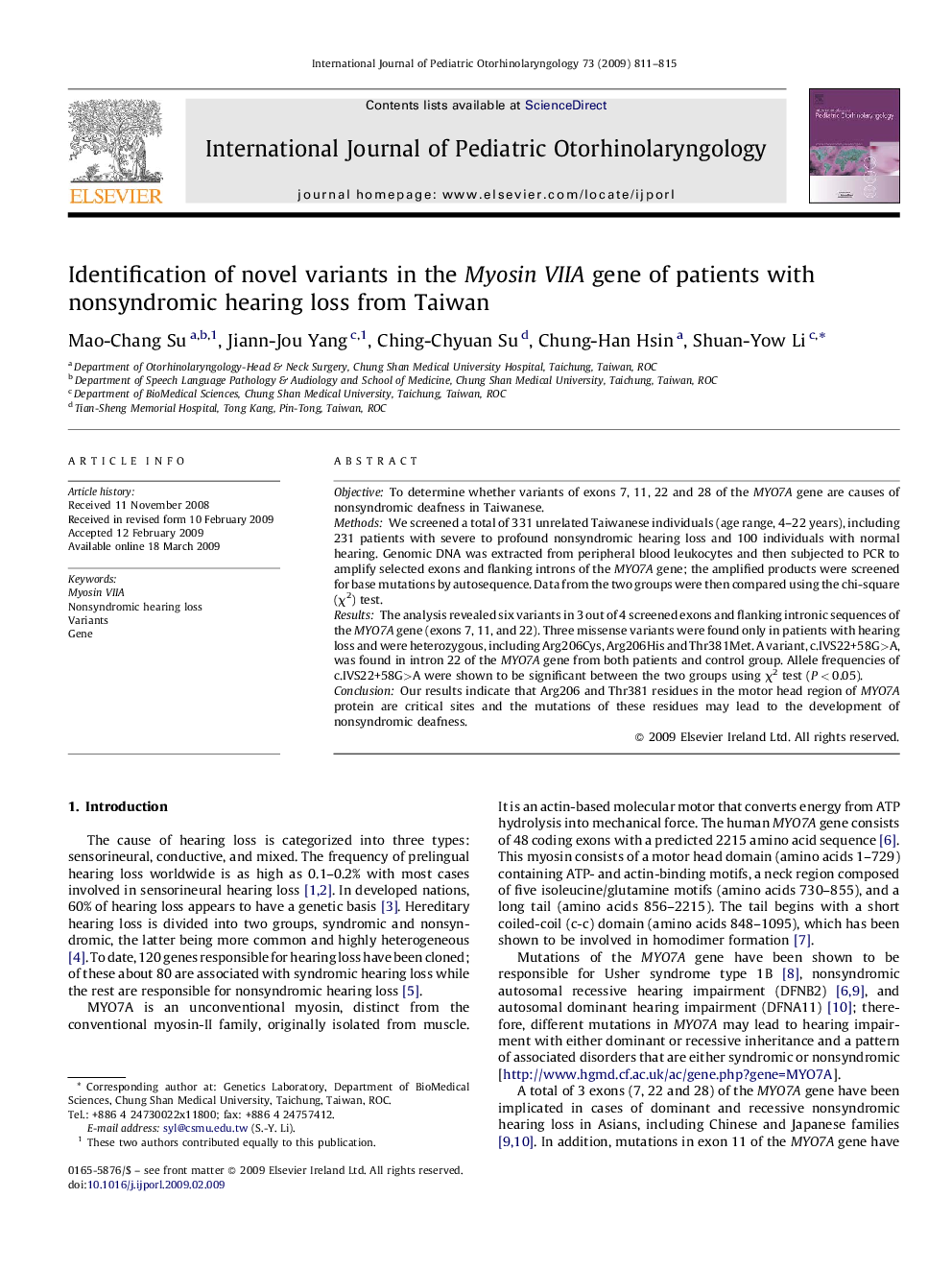| Article ID | Journal | Published Year | Pages | File Type |
|---|---|---|---|---|
| 4114484 | International Journal of Pediatric Otorhinolaryngology | 2009 | 5 Pages |
ObjectiveTo determine whether variants of exons 7, 11, 22 and 28 of the MYO7A gene are causes of nonsyndromic deafness in Taiwanese.MethodsWe screened a total of 331 unrelated Taiwanese individuals (age range, 4–22 years), including 231 patients with severe to profound nonsyndromic hearing loss and 100 individuals with normal hearing. Genomic DNA was extracted from peripheral blood leukocytes and then subjected to PCR to amplify selected exons and flanking introns of the MYO7A gene; the amplified products were screened for base mutations by autosequence. Data from the two groups were then compared using the chi-square (χ2) test.ResultsThe analysis revealed six variants in 3 out of 4 screened exons and flanking intronic sequences of the MYO7A gene (exons 7, 11, and 22). Three missense variants were found only in patients with hearing loss and were heterozygous, including Arg206Cys, Arg206His and Thr381Met. A variant, c.IVS22+58G>A, was found in intron 22 of the MYO7A gene from both patients and control group. Allele frequencies of c.IVS22+58G>A were shown to be significant between the two groups using χ2 test (P < 0.05).ConclusionOur results indicate that Arg206 and Thr381 residues in the motor head region of MYO7A protein are critical sites and the mutations of these residues may lead to the development of nonsyndromic deafness.
